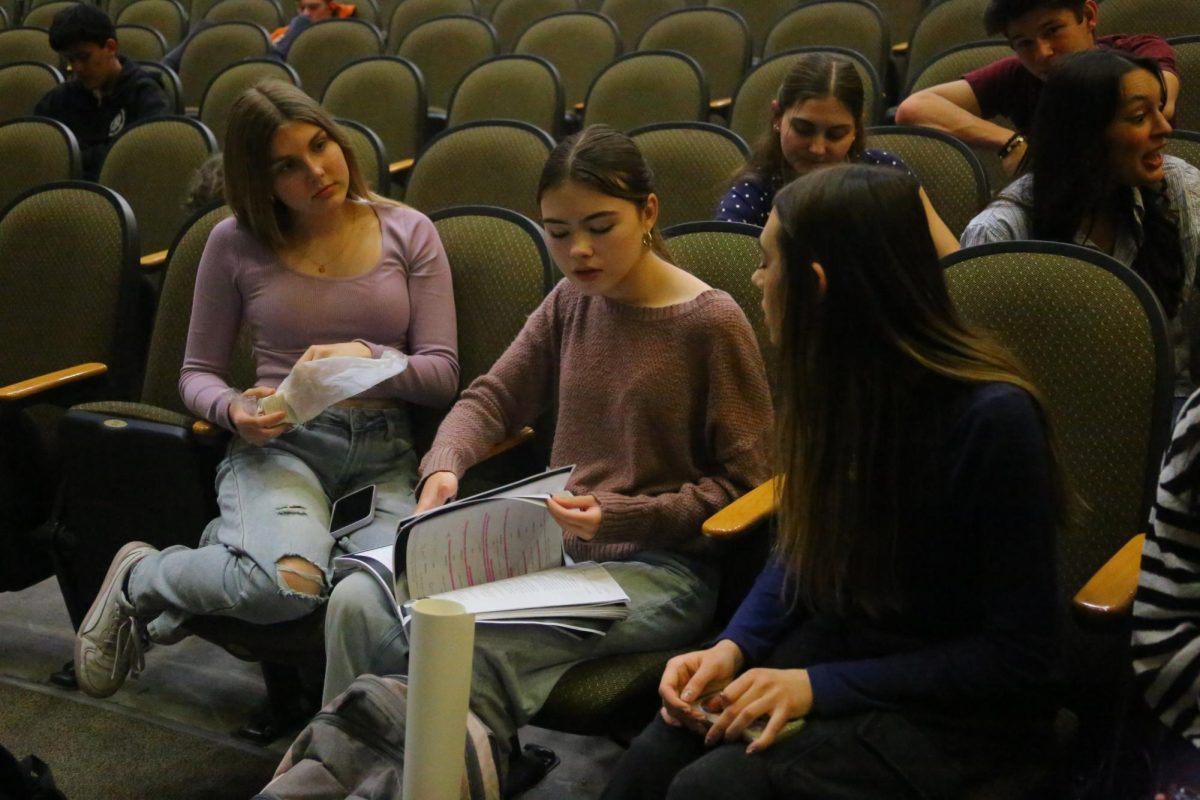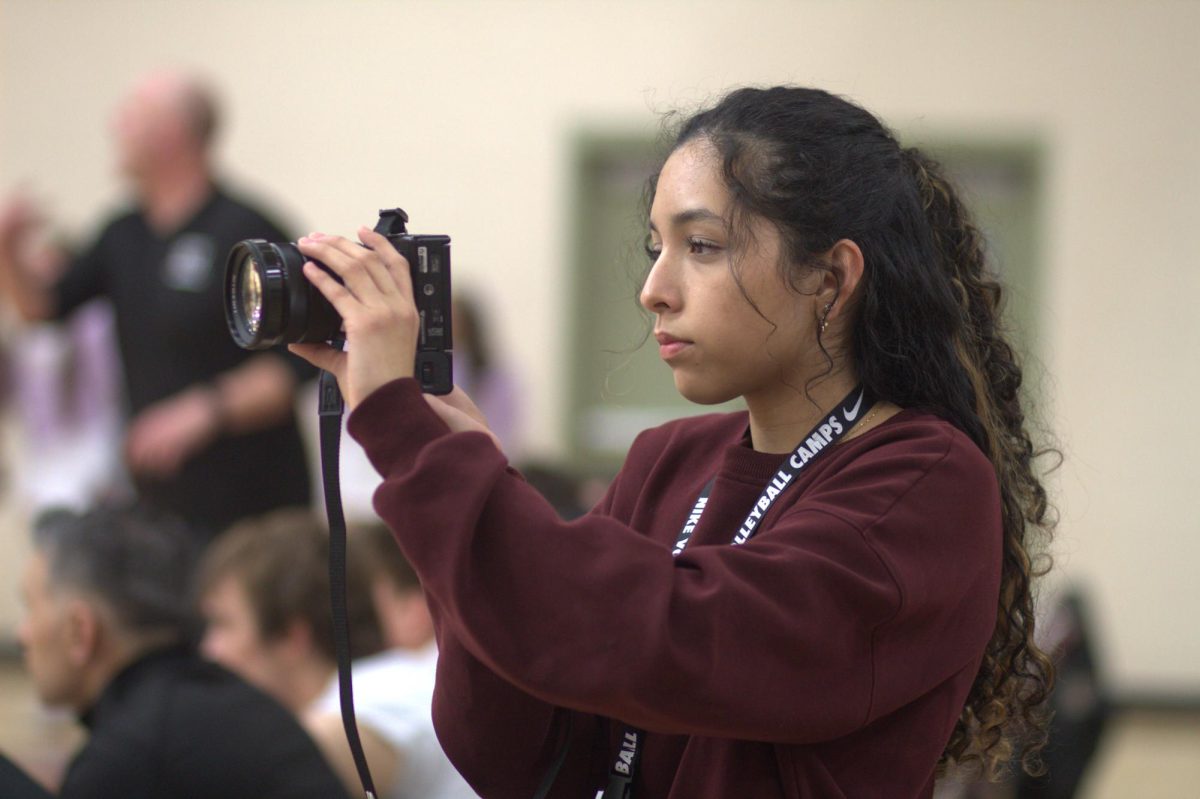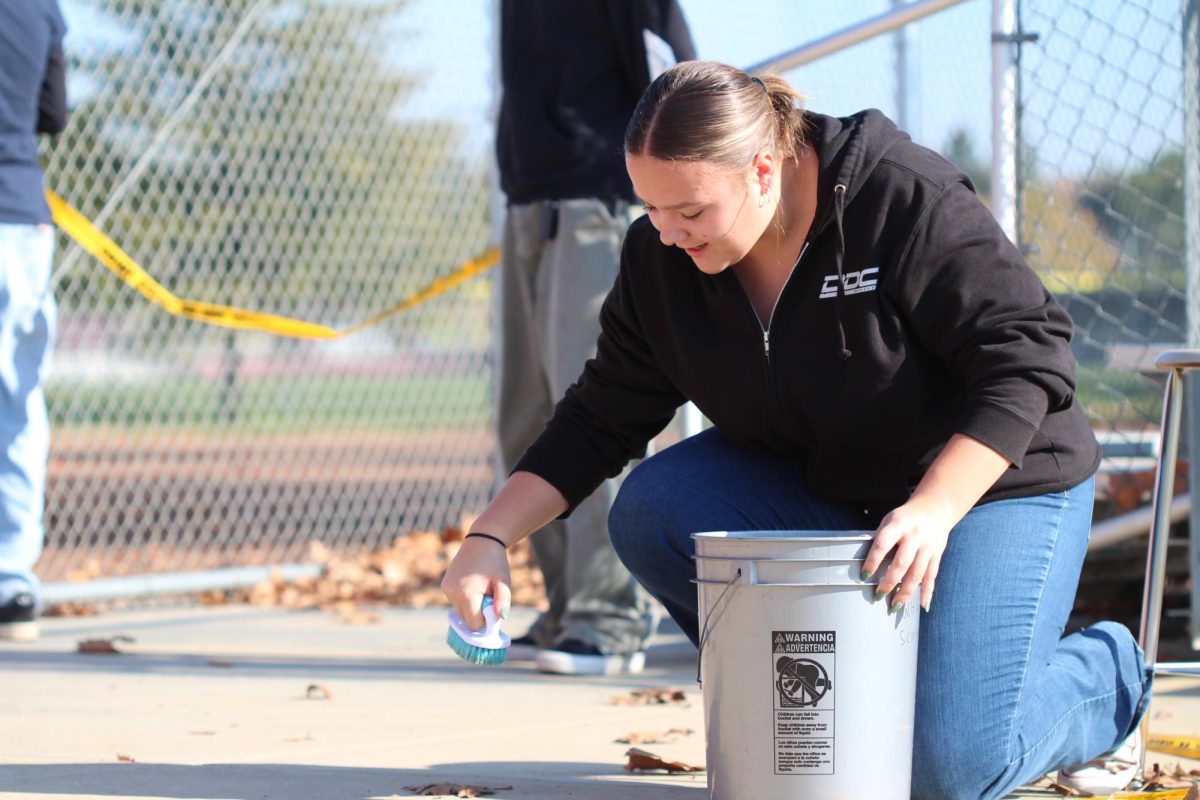Mistakes like a prop in the wrong place, stage crew members fixing doors mid-scene, cast members forgetting lines and set pieces breaking are catastrophic for a play. But for this production, that’s exactly what is supposed to happen. Putting a spin on what a typical play looks like, the theater department is in the midst of producing “The Play that Goes Wrong,” which dives into the special effects and the behind-the-scenes of the stage crew. This murder mystery play is called “The Murder at Haversham Manor.” It’s a who-dunnit from the 1920s era and a series of things go wrong.
“Pretty much everything that has gone wrong at some point in a theatrical show or in the process of it is what goes wrong here,” Mr. Josh Ansley said. “You have amateur actors who are messing up their lines on purpose. You have set pieces falling. You have people wearing the wrong costumes, people who are not showing up for their cues, light and sound cues going wrong. There’s a dog missing at one point. It’s a crazy chaotic thing as they try to put on this show. And it’s a play within a play. It’s a very physical, very technical, absurd comedy.”
Along with the chaos of play, many crew members play double parts to keep up with the intentional mistakes. When one thing intentionally goes wrong, a trickle-down effect makes most students get involved.
In a traditional show, a stage crew member would never interact with characters on stage. Yet, Jayden Qualls, a stage crew member, gets to interact with the active characters in addition to working backstage.
“I do things where it might be messing up here and there, or I’m the person that’s dropping things during the scene and kind of distracting people,” Qualls said. “Even during the pre-show, I might do a few things here and there that seem a little bit out of the norm for what you might see before show.”
Since the beginning of September, the cast has spent 60 to 70 hours of rehearsals and will spend almost double during tech week that started Oct. 22. Despite the title of the play, there are a lot of minor details that need to be flawless due to safety reasons, accounting for even more practice.
“There’s a lot of stuff that goes into the walls falling because we want to make sure no one’s under there, so we have tape markings everywhere to make sure that that does not happen. But the walls, we’ve tested them so many times, and they just work flawlessly,” Glasgow said.
Before making a wall fall, the tech crew must make sure that there are no props on the wall or in the path of the wall, which would prevent it from falling flat. From there, tech crew members take a weight off a supporting anchor behind the wall and give it a light push to send it falling flat to the ground, shocking the audience. The ideas for the walls and props all come from the high school edition script which Ansley has been reviewing to make sure everything flows smoothly.
“Occasionally, you might need to reference a previous theater and what they did just to get ideas. Sometimes I’ll reference two or three, and then I’ll put those together in my mind and think about what’s going to work for us,” Ansley said. “Then sometimes, based on the script, I’ll come up with new ideas as we’re rehearsing for things that I think might contribute to the story. It’s a balancing act of making sure that it’s funny.”
With the scripted chaos and big personalities of the characters on stage, Camille Burton, a stage crew member, said that everything is about timing.
“I think our biggest kind of struggle is making sure everyone knows their cues, because there are big gaps in when people are supposed to be doing things,” Burton said. “Sometimes we get distracted, and then we miss our cue, and then kind of makes the show go wrong in a way we don’t want it to.”
The cast has balanced out between all grade levels with their leads being heavily upper class. It has been a process of really working together and understanding the roles.
“They’ve done a really good job. They have a good understanding of the story and the show. It is definitely a challenge because you have people who are inexperienced, mocking inexperienced people, which requires a level of experience to really understand and pull off,” Ansley said. “They’ve listened to direction really well. It’s a constant learning process. We mess up, we make immature choices. We definitely have some days that are a real struggle. But it always comes together somehow. We just have to keep moving forward, just keeping the rhythm.”
by RHAYMARK NAZARENO & RILEY RUST











![On the stage, Daniel Bozinovski and Rachel Treto play their part as Tom and Hannah in the show “The Cast List”. The show was about a group of students who were told about their cast list for the play “Romeo and Juliet.” The Theater I students were in preparation for their first showcase of the year. Students went over their lines during all of their class for the past two months. “[We put in] a lot of rehearsal, practicing lines, making sure you have everything memorized and making sure you are ready to go in and not forget anything,” Nathan Weeks said. Photo by Megan Kubas.](https://www.whitneyupdate.com/wp-content/uploads/2024/05/IMG_4085-1200x791.jpg)